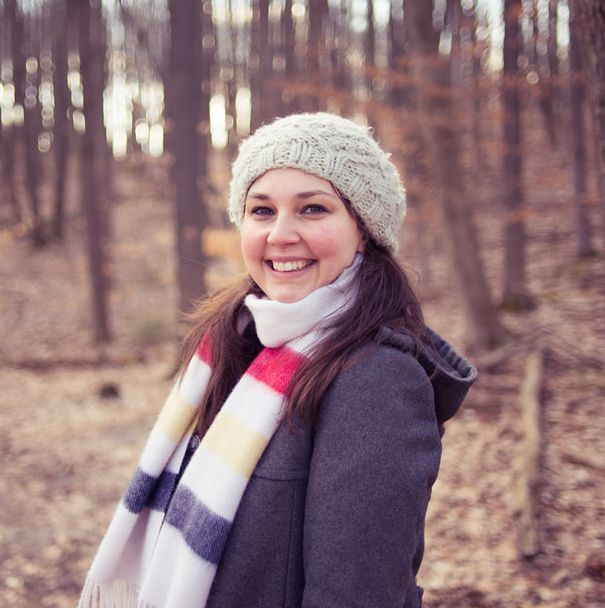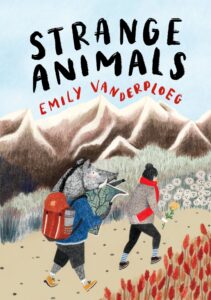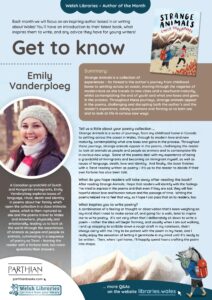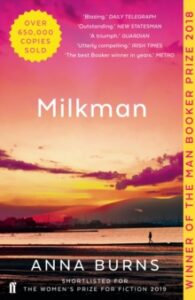Emily Vanderploeg
May 9, 2022
Strange Animals is a series of journeys, from my childhood home in Canada to settling across the ocean in Wales, through to modern love and new maturity, contemplating what one loses and gains in the process. Throughout these journeys, strange animals appear in the poems, challenging the reader to look at animals as people and people as animals and to contemplate life in curious new ways. Some of the poems deal with my experience of being a grandchild of immigrants and becoming an immigrant myself, as well as issues of language, death, love and identity. And finally, the book finishes with a Tarot reading written as poetry – it’s up to the reader to decide if their own fortune has also been told.
What do you hope readers will take away after reading the book?
After reading Strange Animals, I hope that readers will identify with the feelings I’ve tried to express in the poems and that even if they are sad, they will feel hopeful about love and human nature and the passage of time. Writing the poems helped me to feel that way, so I hope I can pass that on to readers, too.
What inspires your poetry?
A combination of a feeling or thought or observation that’s been weighing on my mind that I need to make sense of, and going for a walk, tend to inspire me to write poetry. It’s not very often that I deliberately sit down to write a poem – rather the idea will begin forming, and usually when I am out walking, I end up stopping to scribble down a rough draft in my notebook, that I always carry with me. I try to be patient with the poem in my head, and I really enjoy the sensation of letting it germinate in my mind until it’s ready to be written. Then, when I get home, I’ll happily spend hours crafting the poem into shape.
What, in your opinion, are the most important elements of good writing?
For me, good writing should make the reader feel something and the words should either be beautiful, making you stop just to re-read or digest them, or incredibly precise and economic, so that you can imagine exactly the place or person or feeling described, and feel as if you had created it or been there yourself.
If you had to describe yourself in just three words, what would those be?
Creative, Fun, Kind.
What books inspired you as a young reader?
I loved classic children’s novels, like Anne of Green Gables, Little Women, The Yearling, and Little House on the Prairie, and I read a lot of Nancy Drew and Trixie Belden mysteries (I think Trixie Belden is out of print now, but she was much more fun than Nancy!), and Canadian YA author Kit Pearson’s books. I also loved reading storybooks and I preferred the absurd ones the most, like The Giant Jam Sandwich and Dr. Seuss’ The Many Mice of Mr. Brice.
What book is currently on your bedside table?
At the moment I’m reading Milkman by Anna Burns, and I have a stack of poetry collections that I’ve been meaning to read for ages. I’m reading poetry before bed, which I would highly recommend – better sleep and more interesting dreams!
If you could invite any three people for dinner, whom would you invite?
Hmm… tough question. To make it a real party, I think Elizabeth Taylor would be a fantastic dinner guest and for a full spectrum of gossip (both literary and celebrity), I’d probably ask Cher and Truman Capote to come along as well.
In what way have libraries influenced you during your lifetime?
Libraries have been hugely important to me all my life. My mother took my brother and me to the Aurora Public Library in our hometown weekly and I can still remember the way it smelled and how it seemed incredible that we could choose so many books to bring home each time (the original building was torn down and a new one built; the new smell is good, but not quite the same). When I was 15, the teachers went on strike for the whole month of September, and I used to walk to the library every 2 or 3 days – I read more than 10 novels that month! Then in university, the library was my favourite place to read and research, and later to write – I’m very fond of Stauffer Library at Queen’s University (in Canada), and Swansea University Library, where I’ve written the better part of three books. I also taught some creative writing sessions for kids in different libraries around Swansea before the pandemic and it was so nice to visit ones I wouldn’t normally go to and to write and talk about books with the children. I really hope I’ll get to do that again soon.
Do you have suggestions of how to encourage children and young people to read more for pleasure?
YES! When I was a secondary school English teacher, students would so often tell me that they hated reading because the only time they read was during detentions or when the teacher wanted them to be quiet, and how could you blame them when reading was seen as a punishment? For young children, reading with an adult regularly, and treating it as a thing to look forward to, especially with picture books, will create wonderful memories and positive associations with reading that will last a lifetime. As children begin to read independently, the most important thing is to help them find books that they like and want to read, and to give them time to get into it, perhaps by reading your own book in the same room at the same time (a very cosy activity). As they get older, using books as a relief from screen time and without expectations is really important, as they are so used to reading with exams in mind, and they can forget how to read for the joy of the story or the feeling it can evoke with poetry. And, of course, ask the librarian for recommendations! The perfect book is out there for everyone, but it can be hard to find if you don’t ask an expert where to look.
Find out more on the author’s website http://www.emilyvanderploeg.co.uk/ or Twitter @dippy_dumpling
Strange Animals was published 2nd April by Parthian Books.
Read our Get to Know the Author flyer for further information about the author and their new book. See also our Authors of the Month writing in Welsh.




